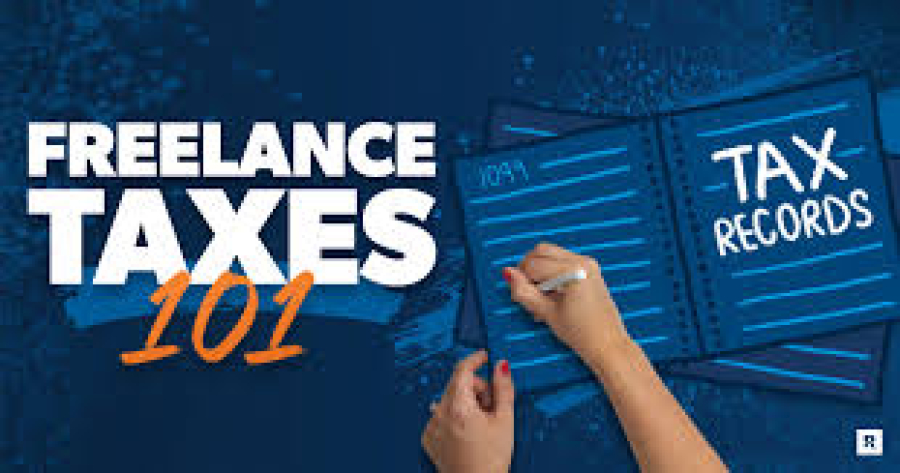How to Handle Freelance Business Taxes
How to Handle Freelance Business Taxes: A Freelancer’s Guide to Tax Management
Freelancers enjoy the freedom of being their own boss, but with that independence comes the responsibility of managing business taxes. Understanding and handling taxes as a freelancer can be confusing, but it’s essential to ensure that you comply with the law, avoid penalties, and maximize your earnings.
At FreelancerBridge, we believe that freelancers should have access to the knowledge and tools to make tax management as easy and stress-free as possible. In this guide, we will cover everything you need to know about handling freelance business taxes—from tracking income to filing taxes—so you can focus on growing your freelance career.
Introduction: Why Freelance Business Taxes Matter
As a freelancer, you are responsible for managing your own taxes, which includes understanding your tax obligations, tracking your income, and knowing what deductions you can claim. Freelance tax rules can vary based on where you live, but having a solid understanding of your tax responsibilities is crucial to avoid fines or surprises come tax season.
Tax management may seem overwhelming at first, but with the right approach and planning, you can make it a smooth and manageable part of your business. By keeping track of your finances and staying organized, you’ll be better equipped to handle taxes and maximize your tax savings.
In this guide, we’ll discuss key points every freelancer should know about handling taxes, including tax deductions, quarterly payments, and how to stay compliant with tax laws.
Long Description: How to Handle Freelance Business Taxes
1. Understand Your Tax Obligations
As a freelancer, you are considered self-employed, which means you are responsible for both the employer and employee portions of taxes. In many countries, this includes paying self-employment taxes, income taxes, and sales taxes (if applicable).
How to handle:
- Research the tax laws in your country or region for self-employed individuals.
- Keep track of all income, whether it's from clients, platforms, or other sources.
- Understand your filing deadlines to avoid penalties and interest.
Why it matters:
- Ensures compliance with tax laws and avoids legal issues.
- Helps you budget appropriately for tax payments.
2. Track Your Income and Expenses
One of the key steps to managing your freelance business taxes is keeping track of all your income and expenses. This not only helps you stay organized, but it also allows you to claim the right deductions at tax time, which can significantly reduce your tax burden.
How to handle:
- Use accounting software or spreadsheets to track your income and expenses.
- Keep all receipts for business-related purchases (e.g., equipment, software, office supplies).
- Categorize your expenses (e.g., office expenses, travel, advertising) to simplify tax filing.
Why it matters:
- Helps you identify legitimate tax deductions, reducing your taxable income.
- Makes tax filing easier and faster.
3. Tax Deductions for Freelancers
One of the benefits of being a freelancer is the ability to claim various business expenses as tax deductions. These deductions can reduce your taxable income and lower your overall tax bill. Some common deductions include home office expenses, business-related travel, and software subscriptions.
How to handle:
- Keep detailed records of all business expenses throughout the year.
- Understand what expenses are eligible for deductions, such as:
- Home office space
- Business supplies and equipment
- Marketing and advertising costs
- Travel expenses for business trips
- Consult a tax professional to ensure you’re claiming all eligible deductions.
Why it matters:
- Reduces your taxable income, leading to lower taxes owed.
- Allows you to maximize savings on business-related expenses.
4. Make Quarterly Tax Payments
As a freelancer, you’re typically required to make estimated quarterly tax payments to the tax authorities. Failing to make these payments can result in penalties and interest. By staying on top of your quarterly tax payments, you can avoid a big tax bill when you file your annual return.
How to handle:
- Calculate your estimated quarterly tax payments based on your income and expected deductions.
- Set aside a portion of your income throughout the year to cover these payments.
- Use online calculators or work with an accountant to estimate your quarterly payments.
Why it matters:
- Prevents underpayment penalties and interest charges.
- Helps you manage cash flow and avoid surprises at the end of the year.
5. Consult a Tax Professional
While it’s possible to handle your freelance taxes on your own, consulting with a tax professional can provide peace of mind and ensure you’re complying with all tax laws. A tax expert can also help you identify deductions you may have missed and optimize your tax strategy for the year.
How to handle:
- Find a tax professional with experience working with freelancers or self-employed individuals.
- Schedule an annual consultation to review your taxes and plan for the upcoming year.
- Use their expertise to optimize deductions and ensure compliance.
Why it matters:
- Ensures accuracy in tax filings and reduces the risk of audit.
- Provides expert guidance on complex tax matters.
Conclusion: Navigating Freelance Business Taxes with Confidence
Handling taxes as a freelancer doesn’t have to be overwhelming. By understanding your tax obligations, tracking your income and expenses, and taking advantage of tax deductions, you can streamline the process and save money. Additionally, making quarterly tax payments and consulting a tax professional will help you avoid penalties and optimize your tax strategy.
At FreelancerBridge, we’re committed to helping freelancers manage every aspect of their business, including taxes. With proper planning and organization, you can ensure that your taxes are handled effectively, allowing you to focus on what you do best—growing your freelance career.


 by Emily
by Emily




